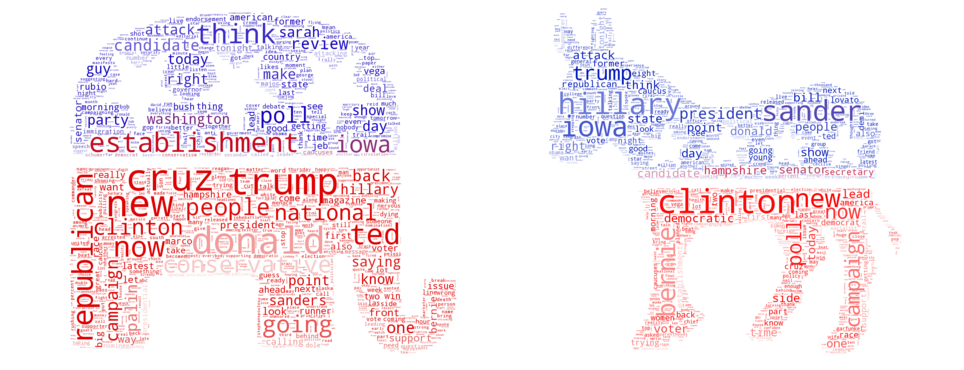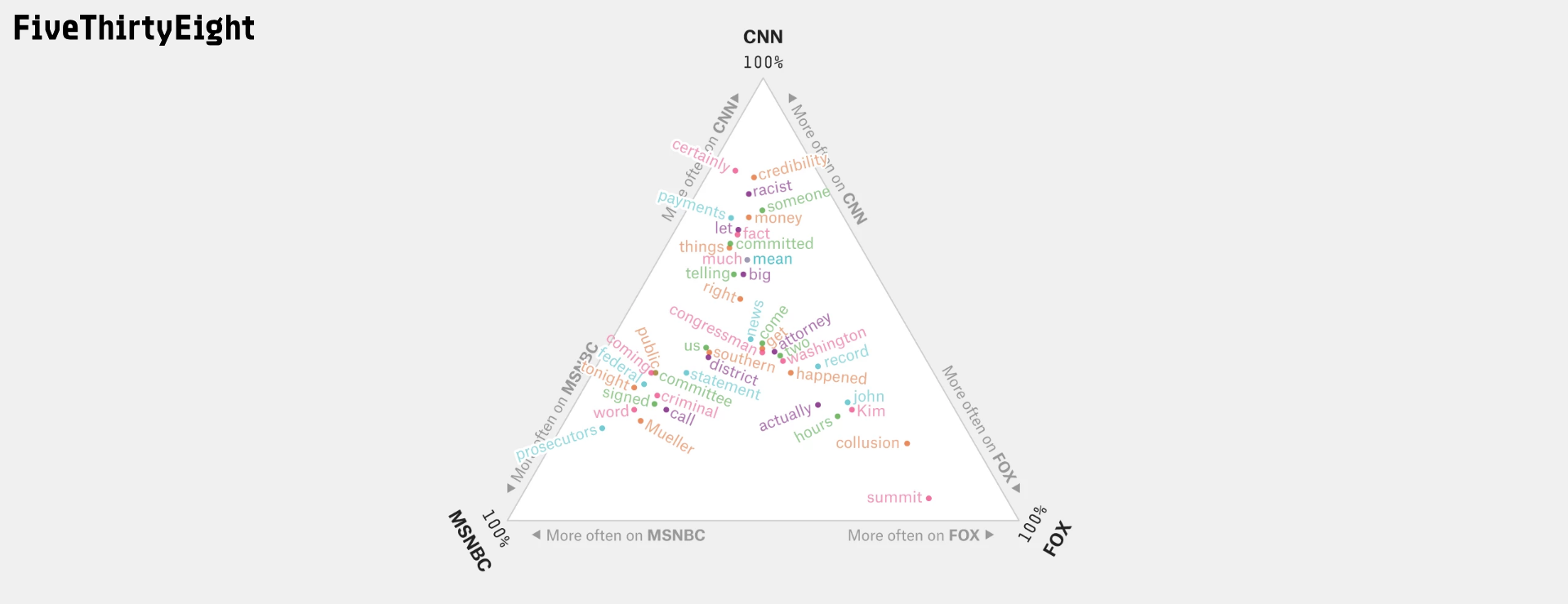
In collaboration with the Internet Archive's Television News Archive, the Television Explorer allows keyword searching of CNN, MSNBC and Fox News back to July 2009. One of the unique aspects of being able to look across these three specific channels is that they form a triad of American political discourse: Fox News on the right, MSNBC on the left and CNN around center left. Comparing appearances stories and keywords across the three channels offers a powerful proxy for its political partisanship. A story or term that appears primarily on Fox News is more likely to be associated with the right, whereas a term more closely associated with MSNBC is more likely to be on the left, while terms that appear roughly equally across the three channels are less likely to be partisan, since they are attracting nearly equal coverage across the political spectrum – though it is important to note that the framing of the term may be partisan, so further refinement, such as the addition of clarifying keywords can be helpful. In other cases, terms may refer to a channel-specific personality or show, but after removing such terms, the end result can be quite powerful.
Such partisanship analysis can extend to the contextual keywords used to frame a given debate. The Cohen hearings were covered heavily across all three channels, but the specific terms used to frame the debate differed dramatically. FiveThirtyEight's Dhrumil Mehta and Oliver Roeder created this fascinating linguistic analysis of the contextual terms surrounding the word "Cohen" across CNN, Fox News and MSNBC:
We'd love to see creative applications of this approach, ranging from which partisan terms to stories to partisan contextual terms for a story being covered across all three channels.
